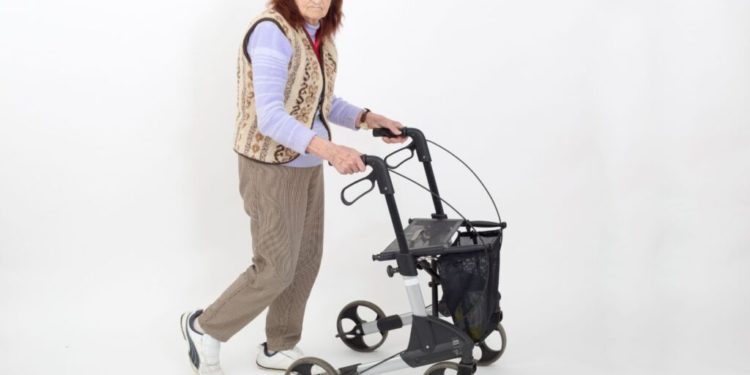Mobility aids have become invaluable tools for people of all ages seeking to maintain their independence and stay active. For those who experience difficulty with balance, strength, or endurance, these aids provide both support and confidence to continue with daily activities. Among the variety of mobility aids available, the rollator walker stands out as a popular choice, offering stability, ease of use, and a range of practical features. In this article, we’ll explore the benefits and features of rollator walkers, factors to consider when choosing one, and tips for safe and effective use.
Understanding the Purpose of Mobility Aids
Mobility aids are devices designed to help individuals move more easily and safely. They are typically recommended for people experiencing issues with balance, limited strength, joint pain, or chronic conditions affecting mobility. Mobility aids range from simple canes to complex wheelchairs, each serving different purposes based on individual needs.
Rollators, in particular, are a versatile option. Unlike traditional walkers, which are often rigid and require users to lift them with each step, rollators come with wheels and brakes, making movement smoother and more continuous. This design reduces strain and fatigue, allowing users to walk longer distances and maintain their active lifestyle.
Choosing the Ideal Rollator Walker to Suit Your Requirements
Choosing the right rollator walker involves more than just selecting the best features; it’s about finding the right fit for your lifestyle and health needs. Here are some factors to consider when choosing a rollator walker:
- Primary Environment of Use
Consider where you will use the rollator most often. If you need a rollator for indoor use, a model with smaller wheels may be more suitable. For outdoor use or rougher terrains, opt for a rollator with larger, durable wheels. - Physical Condition and Support Needs
Your level of physical ability plays a big role in choosing the right rollator. If you need substantial support, a heavier rollator with four wheels might be best. If you have greater mobility but just need occasional support, a three-wheeled rollator might work. - Height and Weight Requirements
Rollator walkers come in different sizes to accommodate various heights and weights. Choose a model that matches your physical requirements, as this will improve comfort and effectiveness. - Personal Preferences
Some people prefer rollators with more amenities, such as additional storage or padding. Think about what will make your experience more comfortable and enjoyable.
Essential Characteristics to Consider When Choosing a Rollator Walker
Not all rollator walkers are the same, so it’s essential to consider specific features based on your needs and preferences. Here are a few critical features to look for when choosing the best rollator walker:
- Wheel Size
Rollators come with either small or large wheels. Smaller wheels (6 inches or less) are ideal for indoor use, where surfaces are generally even. Larger wheels (8 inches or more) are better for outdoor use, as they can handle uneven terrain more effectively. - Braking System
Rollators are typically equipped with loop brakes, which can be activated by squeezing the handles. This braking system allows users to quickly stop or stabilize the rollator when needed. Some rollators also feature push-down brakes, ideal for those with arthritis or limited hand strength. - Seat Comfort and Size
The seat is an essential part of a rollator, providing a place to rest. Look for a rollator with a comfortable, well-padded seat, and consider the size to ensure it meets your comfort needs. Some models offer adjustable seat heights, adding flexibility for different users. - Storage Space
Many rollators come with built-in storage compartments, such as baskets or pouches. These are useful for carrying personal items like wallets, phones, or groceries, adding convenience to daily outings. - Weight Capacity
Rollators are designed to support different weight capacities. Ensure you choose a model that can comfortably support your weight to maintain safety and durability. - Foldability and Portability
If you plan to travel frequently or have limited storage space, a foldable rollator is an excellent option. Foldable models can be easily transported in a vehicle or stored when not in use.
Tips for Using Your Rollator Walker Safely
To get the most out of a rollator walker, it’s important to use it safely and effectively. Here are several recommendations for using your rollator safely:
- Engage the Brakes When Stationary
Always activate the brakes before sitting on the rollator or when standing still to prevent it from rolling unexpectedly. - Practice Indoors First
If you’re new to using a rollator, practice indoors in a controlled environment before taking it outside. Familiarize yourself with the braking system, turning radius, and how to navigate around obstacles. - Keep Good Posture
Use your rollator with an upright posture to reduce strain on your back and improve stability. Modify the handle height to match your personal comfort. - Avoid Overloading the Storage Compartment
Rollator storage compartments are handy, but avoid overloading them with heavy items, as this can make the rollator harder to control.
Conclusion
Choosing a mobility aid like a rollator walker can empower individuals to remain active and independent. With the right rollator, users can navigate various environments safely, rest when needed, and maintain their autonomy. As you explore different options, consider your lifestyle, health requirements, and personal preferences to find a rollator that fits your unique needs. With the support of a well-chosen rollator walker, you can continue to enjoy life’s daily activities with confidence and ease.











































































